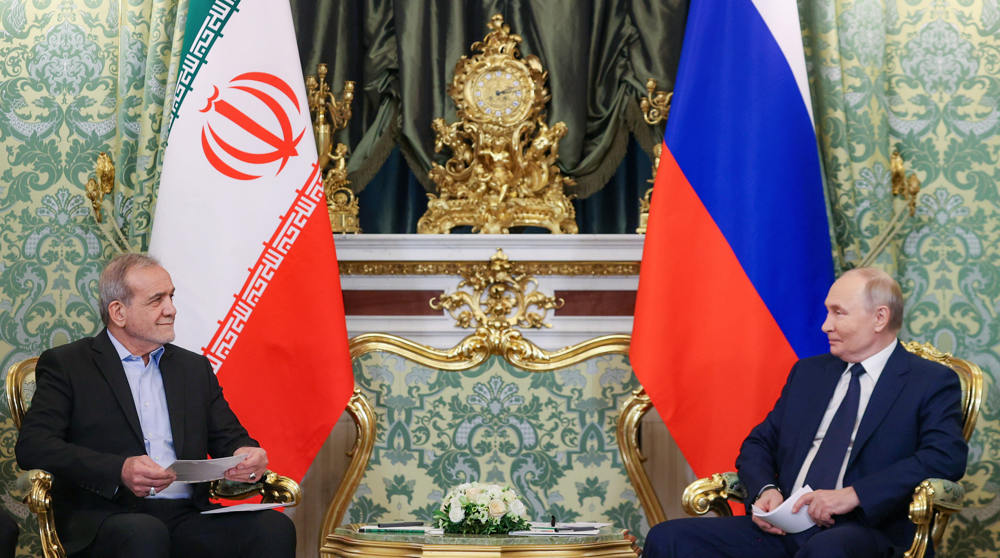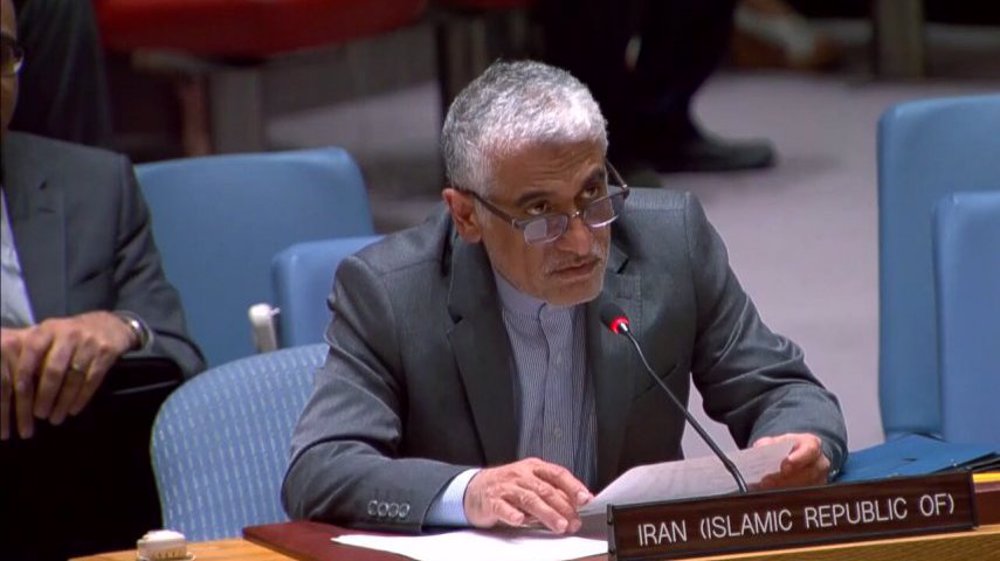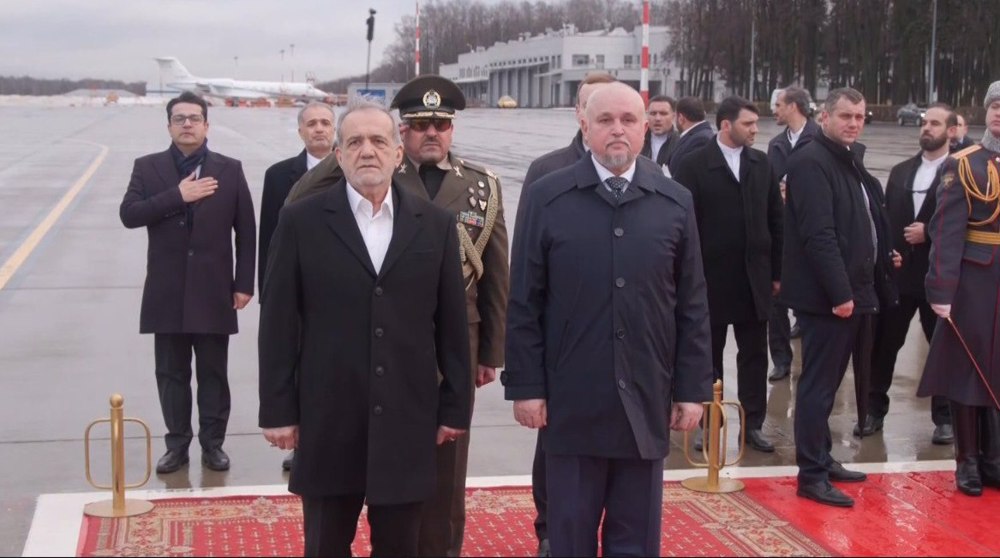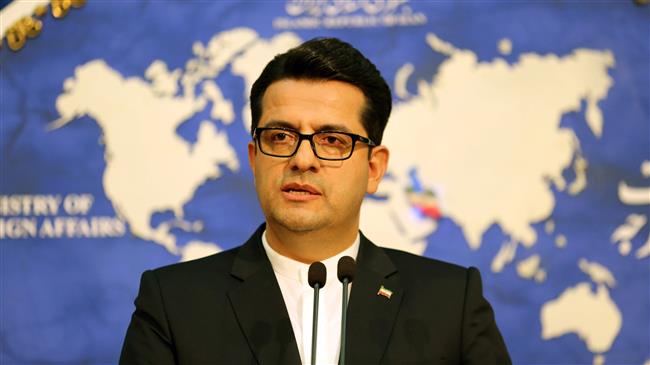Iran set to begin suspending more nuclear commitments on July 7: Security chief
Iran’s top security official says the country is to begin suspending more of its commitments under a 2015 multilateral nuclear deal early next month, when a deadline set by Tehran for the other signatories to fulfill their side of the accord expires.
Secretary of Iran’s Supreme National Security Council (SNSC) Ali Shamkhani said Tuesday that Tehran will “decisively” start the “second phase” of freezing its obligations from July 7.
The agreement was reached between the P5+1 group of states — the United States, the UK, France, Russia, and China plus Germany — and Iran in July 2015. Washington, however, left the deal last May and reinstated the anti-Iran sanctions that it had lifted under the document.
Bowing to Washington’s pressure, Europe has been throwing only verbal support behind the agreement ever since, refusing to guarantee the Islamic Republic’s business interests in the face of American bans despite being contractually obliged to do so.
On May 8, Iran notified its remaining partners in the deal that it would suspend the implementation of some of its commitments as a means of prompting the European side to honor its end of the bargain.
The warning shot saw the country stopping exports of its excess uranium and heavy water for a two-month-long period.
The measure was taken in line with the Islamic Republic’s legal rights under Articles 26 and 36 of the nuclear deal, which is officially known as the Joint Comprehensive Plan of Action (JCPOA)
The country also cautioned that it would resume refining uranium to a higher fissile degree in 60 days if Europe continued to fail Tehran.
Shamkhani further said the second phase of Iran’s measures will be in line with the dual JCPOA articles based on a decision made by the SNSC.
The move will be taken as a message to “those countries, which have construed Iran’s patience as weakness and inaction,” the official said.
The second round will also be a reaction to “deceitful political attempts aimed at restricting the Iranian people’s obvious rights,” he added.
Shamkhani was referring to increasing pressure by the JCPOA’s European partners on Iran to continue meeting its nuclear commitments despite their refusal to honor the Islamic Republic’s demands.
He also pointed to a joint statement issued by British, French, and German foreign ministers a day earlier, through which they stressed “their commitment to the full implementation” of the agreement,” calling the statement an example of “political effrontery.”
Iran’s upcoming measures, Shamkhani asserted, would show that Iran’s reaction to the other parties’ non-commitment to their nuclear obligations would be no different from the way it chose to respond to an American spy aircraft’s recent intrusion into its airspace, he added.
The Islamic Revolution Guards Corps (IRGC), the country’s elite defense force, shot down the drone over the southern Iranian province of Hormozgan on Thursday. The aircraft had ignored the Corps’ repeated warnings.
Iran has no reason left to unilaterally uphold deal
Also on Tuesday, Deputy Foreign Minister Abbas Araqchi said the balance has been tipped between Iran’s obligations and rights under the JCPOA.
“In the light of the European side’s unfulfilled commitments, there is no reason left for Iran to unilaterally implement its obligations,” he said, meeting in Tehran with the visiting State Secretary of the Ministry of Foreign and European Affairs of Slovakia, Lukas Parizek.
Araqchi highlighted the US’s unlawful withdrawal from the JCPOA, which has been ratified in the form of a United Nations Security Council resolution, adding that Iran met both the US’s breach and the European signatories’ non-commitment with “strategic patience.”
The Islamic Republic has, however, kept the window for diplomacy open, while gradually reducing its commitments, the Iranian official said.
For his part, Parizek, who was in Tehran for bilateral political negotiations, voiced hope that Europe would both preserve and strengthen its economic and trade ties with the Islamic Republic by lending force to the Instrument in Support of Trade Exchanges (INSTEX).
The UK, France, and Germany unveiled the direct non-dollar payment mechanism meant to safeguard their trade ties with Tehran from the American sanctions late in January. The vehicle is yet to be implemented though.
Pezeshkian: Iran, Russia steadfast in maintaining strategic ties
VIDEO | Hamas-Israel ceasefire
California: Massive fire erupts at major battery plant
Iranian coast guards stage maritime exercise in Sea of Oman
Pakistan's ex-PM Imran Khan sentenced to 14-year jail term
VIDEO | Press TV's news headlines
Israel kills over 100 Palestinians in Gaza despite ceasefire deal
VIDEO | Wildfires still burning in Los Angeles amid mismanagement















 This makes it easy to access the Press TV website
This makes it easy to access the Press TV website